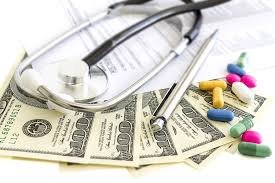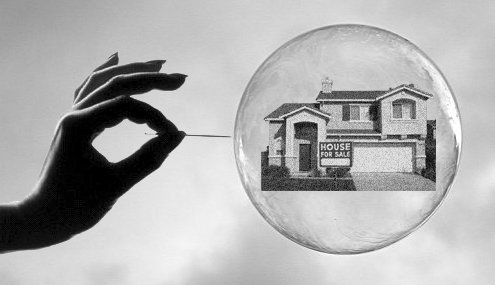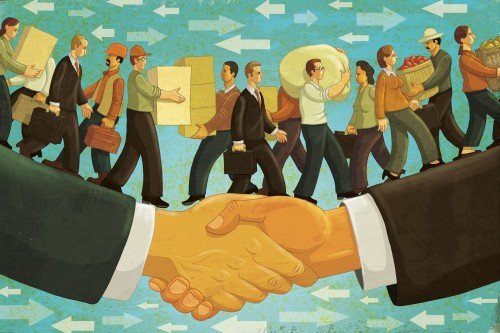----Teacher: Alright children, can anyone explain to me the supply and demand fundamentals?
----Hands Raise*
----Teacher: Yes, Jimmy?
----Jimmy: Supply is the amount of something in existence. Demand is the amount of need or consumption of something. Prices rise when the demand for something increases and the supply stays stagnant or decreases. Prices also rise when demand stays stagnant and supply decreases. Prices fall when supply increases or stays stagnant while demand decreases. Prices also fall when demand stays stagnant while the supply increases. If the supply and demand stay stagnant, or they both rise or fall accordingly to each other, the price generally stays flat.
----Teacher: Jimmy, get the fuck out of my class, you have earned an A for this semester!
What's the problem?..?..?:
College education is getting extremely expensive, but not because the value of education is increasing, but because the supply is staying the same yet the demand is skyrocketing. The demand isn't skyrocketing because college education is somehow leading to higher paying jobs or becoming more rewarding after acquiring a degree, it is because the accessibility of a college degree is increasing. There is a cultural value placed on the college education. To acquire a higher education is supposed to give you access to a stable, higher paying job with room for promotion or elevated positioning, a 401K or pension plan and job security. The reality of the situation is that the cost of the degree that is supposed to grant you these securities is higher than the ability of the position's wages to pay back the loans that you borrowed from the government in the first place.
How did this all happen?:
According to www.newamerica.org/: "The federal government began guaranteeing student loans provided by banks and non-profit lenders in 1965, creating the program that is now called the Federal Family Education Loan (FFEL) program. The first federal student loans, however, provided under the National Defense Education Act of 1958, were direct loans capitalized with U.S. Treasury funds, following a recommendation of economist Milton Friedman. But when Congress wanted to expand on that start, budget rules made the guarantee approach seem more attractive. Today, this system of guaranteed student loans has been entirely replaced, and all new loans are issued directly by the Department of Education."
According to www.insidehighered.com/: "Friedman’s actual proposal was something closer to an equity investment: think stocks, not loans. Under his plan, the government would provide students with financial assistance to pay for college and, in return, the students would pay a percentage of their income back to the government each year regardless of the amount of money initially provided to them. In other words, income-contingent loans socialize losses and privatize gains. Friedman’s plan socializes losses and gains. Let’s walk through what that means: When the government issues a loan, it is agreeing with the borrower that it will get back the principal plus interest, no more, no less. Once the borrower repays what the government initially lent her, plus interest, she’s free of the debt. However, under our current income-contingent loan system borrowers who are consistently low-income will not pay back the full amount of their loan, meaning that taxpayers will bear the cost of that loan (socialized loss), whereas high-income borrowers will pay back the loan and then continue to personally reap."
This is not meant to be an attack on Milton Friedman, although I have a reservation on a few of his endorsements of the past, but this is how the problem arose. I don't know the power of his endorsement at the time, but I do know that he had a deal of influence in the era. The pundits of that time have left a mark on how education is acquired today and have had an influence on the investment/return ratio for the worse. When the government finances a sector and guarantees under-qualified applicants, the risk of the product seller (colleges in this case) is diminished. They will get paid whether the student defaults on a loan or not. The government subsidizing of education has incentivized colleges to raise their price of tuition to the point where the average citizen cannot pay for a degree without getting a government loan. Additionally, if you get a government loan for college education, the loans are structured to where you remain in debt for the remainder of your life. In short, since the government guarantees payment of your debt to colleges, colleges raise the price of education to where no one can afford it without a government loan. You see the dirty cycle?
There is another nasty side effect to the standardization of education. Since the loans of students are guaranteed to every college, most of them are filled to capacity at every opening semester. When the demand is easily filled, there becomes a shortage of true competition between colleges for quality because the attendance fulfillment is not contingent upon the greatness or prestige of a college, but on the ability of a student to qualify for a government backed loan. This diminishes the quality of education and increasingly passes under-qualified graduates into important specialty positions, such as medicine...
What else has the government killed for us?
Medical care is experiencing the same price hikes, but why? For the same reason that college education is becoming more expensive! Government intervention has made it so the general access to health care is at easy access but on the dime of the tax payers, or the inflation genie. Just like education, health care providers know that a large portion of their clients are under insurance plans that are subsidized by the government, guaranteeing their payment, which does nothing but to incentivize the health care providers to raise the prices of their care, which then trickles down to the pharmaceutical companies whose products are also covered under these insurance plans, making the price of 'medicine' increase as well. I am no advocate of pharmaceuticals and even traditional means of health care, but you can see how government intervention makes it so the average person cannot afford health care without the dependence of the state.
How does housing play into this?
In the early 2000's, the environment for investing in the real estate market was prime. Banks were lending out mortgages at extremely low interest rates, while selling those mortgage debts to investment banks who would then pass on that debt to private investors. Since interest rates were so low, and the values of real estate were rising, an investor could buy a home with little to no down payment, wait a few years while the property appreciates and then sell the home at a profit. The debts that the investment bankers sold to private investors were called mortgage bonds and since mortgages had a high rate of payment to default, it was considered an extremely safe investment. Eventually, banks ran out of qualified borrowers to loan their money to, so they lent money to increasingly less qualified people. The loans that were lent to these individuals are called sub-prime mortgages. Eventually the ratio of payment to default shrunk considerably and the bonds crashed in value causing a sector collapse and property values to plummet before sellers could liquidate their inventory. This created a lot of private debt. How did the interest rates get so low to create the atmosphere for malinvestment? In short, the government backed housing loans and in cooperation with the Federal Reserve set low interest rates.
Is the free market the answer?
This argument has been utilized countless times in debates with socialists but there are no counters for the logic. If I have a banana stand next to another person who has the same business and your competitor isn't a beautiful woman that's a solid 8 and we have the same prices and quality of produce, the market will generally create an equilibrium where we will generate the same amount of revenue. This is considering that we are at equally prime locations, have similar interpersonal skills and neither of us has some other feature to our business that generates an advantage. The only apparent ways to beat your competition in increasing revenue or creating a higher influx of business is to either lower your prices or sell a better product. In all sectors that we have discussed already, college, medical care and housing, these same supply and demand fundamentals apply. If there were no outside influences from the government by subsidizing these sectors, not only would the prices be forced lower by the impact of open market competition, the quality of service or product would surely appreciate as well. This is the natural tide of free market competition.
Conclusions:
There is no way to standardize or regulate spontaneity into being productive moreso than if it were the act of free willing, consensually acting individuals, least of all in the marketplace. I challenge you all to make trades this week without paying a tax and where both parties benefit. If you can do this, then you can prove to yourself that force and coercion in the marketplace is not necessary. This is progress.







Great post. Feels like the only way out of their bubble system is to not use their funny money.
Gold is the money of kings, Silver is the money of gentlemen, and debt is the money of slaves.
Downvoting a post can decrease pending rewards and make it less visible. Common reasons:
Submit
Agreed, the only way out of the cycle is to stay out of their system of debt, avoid taxes if possible, keep yourself healthy by eating right and keeping an account of sound money.
Downvoting a post can decrease pending rewards and make it less visible. Common reasons:
Submit
Congratulations @orgagainsttheest! You have completed some achievement on Steemit and have been rewarded with new badge(s) :
Happy Birthday - 1 Year on Steemit
Click on any badge to view your own Board of Honor on SteemitBoard.
For more information about SteemitBoard, click here
If you no longer want to receive notifications, reply to this comment with the word
STOPDownvoting a post can decrease pending rewards and make it less visible. Common reasons:
Submit
Congratulations @orgagainsttheest! You received a personal award!
You can view your badges on your Steem Board and compare to others on the Steem Ranking
Vote for @Steemitboard as a witness to get one more award and increased upvotes!
Downvoting a post can decrease pending rewards and make it less visible. Common reasons:
Submit